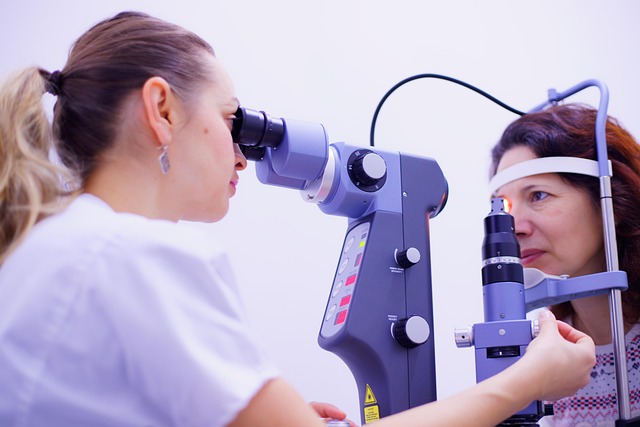What is Amyloidosis and How It Impacts the Body
Amyloidosis is a condition where abnormal proteins accumulate in organs and tissues. The symptoms can vary depending on the type and area affected, ranging from fatigue to swelling or difficulty breathing. This overview highlights important signs and diagnostic factors to be aware of.

What is Amyloidosis and Its Main Types
Amyloidosis occurs when proteins fold incorrectly and form insoluble fibrils that deposit in various tissues. There are over 30 different types of amyloidosis, but the most common forms include AL (light chain) amyloidosis, AA (inflammatory) amyloidosis, and hereditary amyloidosis. AL amyloidosis, the most prevalent type, develops when plasma cells in bone marrow produce abnormal antibody light chains that form amyloid deposits. AA amyloidosis typically results from chronic inflammatory conditions like rheumatoid arthritis or inflammatory bowel disease. Hereditary amyloidosis is caused by genetic mutations that produce unstable proteins, with transthyretin (TTR) being the most common inherited form affecting the heart and nervous system.
Signs and Symptoms of Amyloidosis
The signs and symptoms of amyloidosis vary significantly depending on which organs are affected and the type of protein involved. Common early symptoms include unexplained fatigue, significant weight loss, swelling in the legs and ankles, and shortness of breath. When amyloidosis affects the heart, patients may experience irregular heartbeat, chest pain, and symptoms of heart failure. Kidney involvement often presents as protein in the urine, swelling, and eventually kidney dysfunction. Nervous system amyloidosis can cause numbness, tingling in hands and feet, digestive problems, and carpal tunnel syndrome. Gastrointestinal symptoms may include nausea, diarrhea, and feeling full quickly after eating. Skin changes such as easy bruising, particularly around the eyes, and thickened skin patches can also occur.
Warning Signs of Amyloidosis That Require Immediate Attention
Several warning signs of amyloidosis should prompt immediate medical evaluation due to their potential severity. Sudden onset of heart failure symptoms in someone without prior heart disease, especially when combined with other systemic symptoms, warrants urgent assessment. Rapid kidney function decline with significant protein in urine, particularly in older adults, may indicate amyloidosis. Unexplained peripheral neuropathy, especially bilateral carpal tunnel syndrome, should raise suspicion for TTR amyloidosis. Severe fatigue combined with unexplained weight loss of more than 10 pounds, persistent swelling that doesn’t respond to typical treatments, and gastrointestinal bleeding or severe digestive issues are all red flags. Additionally, easy bruising around the eyes, enlarged tongue, or voice changes can be distinctive warning signs that should not be ignored.
How Amyloidosis Impacts Different Body Systems
Amyloidosis creates a cascade of problems throughout affected body systems by disrupting normal cellular function and tissue architecture. In the cardiovascular system, amyloid deposits in heart muscle make it rigid and less able to pump effectively, leading to restrictive cardiomyopathy and potentially fatal arrhythmias. Kidney involvement results in progressive damage to filtering units, causing protein loss and eventual kidney failure requiring dialysis or transplantation. The nervous system effects depend on the type of amyloidosis but can include peripheral neuropathy, autonomic dysfunction affecting blood pressure and digestion, and in some cases, brain involvement leading to cognitive impairment. Liver deposits can cause hepatomegaly and dysfunction, while gastrointestinal involvement may lead to malabsorption, bleeding, and motility problems. The respiratory system can be affected through lung deposits or secondary effects from heart failure.
Current Treatment Approaches and Healthcare Providers
Treatment for amyloidosis has evolved significantly, with specialized centers offering comprehensive care through multidisciplinary teams. Major academic medical centers like Mayo Clinic, Cleveland Clinic, and Johns Hopkins have dedicated amyloidosis programs providing cutting-edge treatments. The approach varies by type: AL amyloidosis treatment focuses on eliminating the abnormal plasma cells through chemotherapy or stem cell transplantation, while TTR amyloidosis may be treated with newer medications like tafamidis or gene silencing therapies. Community oncology practices and hematology centers increasingly offer amyloidosis treatment, though complex cases often require referral to specialized centers.
| Treatment Center | Services Offered | Key Features |
|---|---|---|
| Mayo Clinic Amyloidosis Program | Comprehensive diagnosis, chemotherapy, stem cell transplant | Specialized multidisciplinary team, research protocols |
| Cleveland Clinic Taussig Cancer Institute | AL amyloidosis treatment, cardiac amyloidosis care | Integrated cardio-oncology approach, clinical trials |
| Memorial Sloan Kettering | Advanced AL amyloidosis therapies, stem cell transplant | Leading research center, innovative treatment options |
| Johns Hopkins Amyloidosis Center | All types of amyloidosis, genetic counseling | Comprehensive care model, family screening programs |
Long-term Outlook and Disease Management
The prognosis for amyloidosis varies considerably based on the type, organs involved, and how early treatment begins. AL amyloidosis outcomes have improved dramatically with modern treatments, particularly when diagnosed before significant heart involvement occurs. TTR amyloidosis, while progressive, now has targeted therapies that can slow or halt disease progression. Early diagnosis remains crucial, as organ damage from amyloid deposits may be irreversible even after successful treatment of the underlying protein production. Regular monitoring through specialized blood tests, imaging studies, and organ function assessments helps guide treatment adjustments and detect complications early. Supportive care for affected organs, including heart failure management, kidney protection, and neuropathy treatment, plays an essential role in maintaining quality of life. Genetic counseling is important for hereditary forms to assess family member risks and guide screening recommendations.
Amyloidosis represents a complex group of diseases that require specialized knowledge for proper diagnosis and treatment. While the rarity of these conditions can make initial diagnosis challenging, increased awareness among healthcare providers and patients about the warning signs can lead to earlier detection and better outcomes. The landscape of amyloidosis treatment continues to evolve rapidly, offering hope for improved survival and quality of life for those affected by these serious but increasingly treatable conditions.
This article is for informational purposes only and should not be considered medical advice. Please consult a qualified healthcare professional for personalized guidance and treatment.




